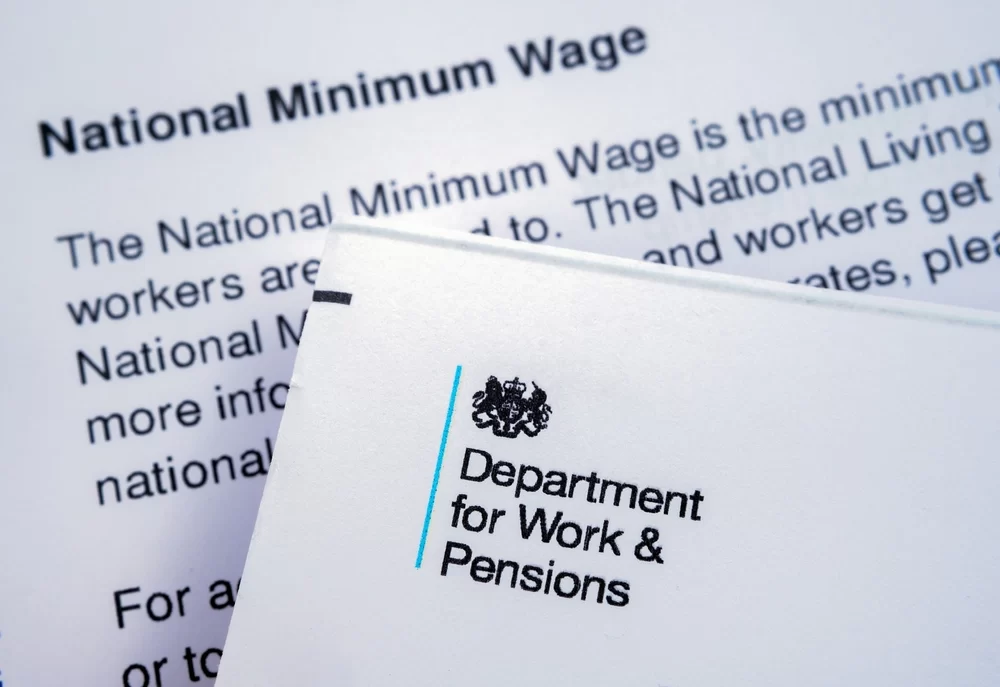Covid restrictions may have been lifted but employers still have a legal duty to protect staff, so how can they live with COVID-19 this winter and manage staff absences effectively and legally??

What Are an Employer’s Legal Obligations?
While there is no longer a requirement for all employers to explicitly consider COVID-19 in their statutory health and safety risk assessments and the laws that required individuals to test if they had COVID-19 symptoms and then self-isolate and/or work from home if they tested positive have been revoked, employers still have both statutory and common law duties for health and safety.
The Health and Safety at Work etc. Act 1974 (HSWA 1974) imposes a general duty on employers to ensure, so far as is reasonably practicable, the health, safety and welfare at work of all their employees. It sets out the basic health and safety duties of a company, its directors, managers and employees and acts as the framework for other health and safety regulations. In particular, employers should ensure:
- Provision and maintenance of plant and systems of work that are, so far as is reasonably practicable, safe and without risks to health.
- Safe use, handling, storage and transport of articles and substances.
- Information, instruction, training and supervision as is required to ensure, so far as reasonably practicable, the health and safety of employees at work.
- Places of work under the employer’s control are, so far as is reasonably practicable, safe for work and without risks to health (with safe entrances and exits).
- Provision and maintenance of a safe working environment with adequate facilities and arrangements for welfare at work.
(Section 2(2), HSWA 1974)
In addition to their statutory duties, all employers have a common law duty to take reasonable care for the safety of their employees; they have a duty to see that reasonable care is taken to provide them with a safe place of work, safe tools and equipment, and a safe system of working.
It is an implied term of employment contracts that employers will take reasonable care of the health and safety of employees and provide a reasonably suitable working environment for performance of the employee’s contractual duties. Where employees raise concerns about health and safety, they are potentially protected from unfair constructive dismissal, from detriment and dismissal by the health and safety provisions in sections 44 and 100 of the Employment Rights Act 1996, and from detriment and dismissal by whistleblowing legislation. Workers are potentially protected from detriment under the whistleblowing legislation.
Whilst there is no legal requirement for employers to report workplace outbreaks of respiratory infections to their local public health team, outbreaks of high levels of people with respiratory symptoms in workplaces should trigger actions to help reduce the spread.
Reducing the Spread of Respiratory Infections in the Workplace
As we move into our first winter without COVID-19 restrictions for two years, we will likely see a significant increase in cases of COVID-19 and other respiratory infections, which will, courtesy of the Health and Safety at Work etc. Act 1974, impose legal and operational obligations on employers.
Keys steps employers should take manage the risk of infection from COVID-19 and other respiratory infections include:
- Encourage and enable vaccination
- Let fresh air in
- Maintain a clean workplace
- Reassure staff by telling them how the workplace has been made safe
- Encourage staff to raise any concerns they have, listen to them, and try to resolve them together
- Consider the needs of employees at greater risk from COVID-19 and other respiratory infections, including those whose immune system means they are at higher risk of serious illness and be aware that you must make reasonable adjustments for disabled staff
- Take steps to keep everyone safe at work
COVID-19 will remain a public health issue and guidance for workplaces has been replaced with public health advice. You can check the latest position and timescales for the nation you are working in here:
Managing Absences Caused by Infection from COVID & Other Respiratory Viruses
The latest public health advice for individuals suffering with symptoms of Covid-19 and other respiratory infections such as flu is consistent across the UK and recommends that individuals should try and stay at home and avoid contact with other people if they have symptoms of a respiratory infection.
In consideration of the latest public health advice and the strong likelihood of a significant rise in COVID-19 and other respiratory infections as we move into winter, employers will almost certainly see an increase in employee absences and should therefore be ready to manage absences effectively and legally.
The main issues an employer will need to consider when dealing with sick employees include:
- Entitlement to SSP and/or contractual sick pay, including deciding whether qualifying conditions have been met. Many employers will have sickness policies which set out relevant qualifying conditions.
- The reason for absence, and whether it is genuine. This will entail ascertaining the true medical position and may involve seeking a medical report.
- Whether the incapacity has been caused by workplace factors such as stress, bullying or an accident at work.
- Whether the absence coincides with any periods of holiday.
- Whether the absence is related to a disability and whether any reasonable adjustments may need to be made.
- Considering whether the employee may be eligible for permanent health insurance or ill-health retirement.
- Whether dismissal is appropriate and, if so, ensuring a fair process is followed.
Having an effective policy in place will help employers to deal with absences consistently and effectively as well as putting employees on notice as to the standards of attendance and reporting that the employer expects from them. This in turn will help reduce legal risk.
Sickness Absence Reporting Requirements
Employers should ensure that they set out the reporting requirements for staff who are unable to attend work due to illness or injury. Employers will have differing views on the time by which absence must be reported. In many workplaces it may not be practicable to notify anyone earlier than the normal opening time at that workplace. However, where staff work shifts, the workplace may be open long before the employee’s shift starts (or even open 24 hours a day) in which case the employer may require sickness to be notified at least an hour in advance of the start of a shift, so that cover can be arranged if necessary.
Evidence of Incapacity
For the purposes of company sick pay, an employer is free to choose what evidence of incapacity it requires. Many employers require self-certification for up to seven days’ absence, and a medical certificate thereafter, as this is in line with the statutory sick pay (SSP) requirements. For SSP purposes, an employer cannot require a doctor’s certificate for the first seven days of sickness absence. Whether they do so after that is largely up to the employer, but most do. Strictly speaking, employees need not self-certify absence of less than four days for SSP purposes, as SSP is not paid for the first three days of absence. However, an employer may still wish to ask for self-certification of shorter periods as part of its absence management strategy.
Employers can in theory require a doctor’s certificate for all absences as a pre-requisite of company sick pay, although this is rare. Many employers require self-certification. (See Practice note, Managing sickness absence: Evidence of incapacity.)
The “Statement of Fitness to Work” (or “fit note”, which replaced the old-style sick note in April 2010) enables GPs to certify that an employee is “not fit for work” or that they “may be fit for work” taking account of advice that the GP then sets out. This may include recommendations such as a phased return to work, altered hours or duties, or other adaptations. When presented with these statements, employers should generally hold a return-to-work interview to discuss any changes that may be needed.
Return to Work Interviews
Return-to-work interviews give an employer the opportunity to welcome a member of staff back to work. In addition:
- They provide the opportunity to confirm the details of the absence for record-keeping purposes.
- The provide an opportunity to discuss any changes that might be needed to facilitate a return to work.
- In the case of someone who has had several short, intermittent absences (and who is unlikely to be on a phased return-to-work programme), they provide the opportunity to establish whether there may be any underlying health or other (for example, disciplinary) issues that the employer should investigate further.
An effective sickness absence policy can fulfil several purposes. First, it sets out the employer’s sick pay arrangements including the rates of pay and the requirements for notifying and providing evidence of incapacity. It is a legal requirement that terms and conditions relating to incapacity for work due to sickness or injury, including any provision for sick pay, are given to the employee in writing. This can be done either in the “principal statement” of employment terms given under section 1 of the Employment Rights Act 1996 (ERA 1996), or in a reasonably accessible document such as a staff handbook, referred to in the statement. (Section 1(4)(d)(ii), ERA 1996.).
Second, the policy provides a procedure for managing longer-term incapacity including obtaining medical evidence, considering alternatives for rehabilitating the employee into work (including any reasonable adjustments for disability under the Equality Act 2010), and ultimately providing a fair procedure for dismissal where this is the appropriate course of action.
Managing Long-term or Persistent Absence
The purpose of a sickness absence meetings procedure is for employers to address issues caused by illness, as well as staff being away from and not contributing to its business. Issues are likely to arise when it is believed that illness is not genuine or where repeated periods of absence or long-term absence are impacting on colleagues, departments, and the employer’s business.
The procedure needs sufficient flexibility to deal with each individual case. Employers should consider adjourning any meeting in the procedure to consider any new matters if they arise. As soon as a case is identified as a conduct rather than an ill-health issue, it should be transferred and dealt with under the employer’s disciplinary procedure.
While it would seem probable that the right to be accompanied does not extend to meetings which are not disciplinary in nature, including those relating to ill-health, providing the right to be accompanied and adding the discretion for the employer to exercise flexibility would be prudent. Whether, and to what extent, discretion is exercised can only be decided on a case-by-case basis.
Medical Examinations
Medical advice can:
- Establish the reason for absence and whether any illness is genuine.
- Indicate the likely length of continued absence.
- Assess the effect of an illness on an employee’s ability to do their job, what they are capable of and what, if any, adjustments can be made to help them to return to work.
- Assist in arranging a phased return to work from long-term sickness absence.
- Establish whether an employee is likely to qualify for any employment benefits, such as permanent health insurance (PHI) or early ill-health retirement.
Highlighting the potential to ask for medical advice may put off employees who are minded to “fake” illness to take time off work. It also draws attention to the need to co-operate with the employer’s attempts to understand ill health absence.
The steps an employer must take when requesting a medical report (whether from a general practitioner, a specialist consultant, a company doctor, or an occupational health specialist), must take the impact of the Access to Medical Reports Act 1988 and data protection legislation into consideration.
Stage One: Initial Sickness Absence Meeting
The purposes of the first meeting will depend on the type of sickness absence being investigated and whether any potential conduct issues have arisen in the individual case.
Prior to convening the initial sickness absence meeting, full details of the absence record along with reasons should be made available to all participants. The employee should be made aware of the date and location of the formal meeting and the reasons for it. In addition, they should be informed of the right to be accompanied by a work colleague or trade union representative at the meeting.
In cases of long-term sickness absence, the central issues will be the nature of the employee’s illness, how much longer they are likely to be away and whether they are going to be able to return to their job. It may be too early to predict a return date and it may be decided to obtain medical advice (either from the employee’s and/or the employer’s medical advisers) on both this and the employee’s ability to resume their job/adjustments at this stage.
In cases of intermittent absences, the issue may be the cause of the employee’s absences and the likelihood of recurrence. An employer may need to explain the impact that the absences are having on the employee’s colleagues and on the employer’s business. It may be decided to obtain medical evidence on the nature of the employee’s illness, the likelihood of recurrence and any steps that can be taken to reduce recurrence.
A meeting can end with a summary of matters discussed and action that it has been agreed will be taken. This can then be confirmed in writing as detailed under the procedure.
Stage Two: Second Sickness Absence Meeting
After the first stage of the sickness absence procedure, the second stage provides for further meetings with a view to resolving difficulties caused by short-term intermittent absences and the return to work of an employee on long-term sickness absence.
The second stage of the procedure should be designed to be flexible, accommodating the individual characteristics of each case. The suggested purposes of the further meetings in the procedure can act as a checklist for employers, to ensure that they are considering those matters relevant to a fair and non-discriminatory dismissal (should it ultimately terminate the employee’s employment).
Stage Three: Final Sickness Absence Meeting
The third stage of the procedure is reached when meetings under the second stage have not achieved their intended aim (overseeing a long-term absentee’s return to work or the eradication of sporadic absences).
This meeting should provide the employer with an opportunity to review the action it has taken to achieve its aim, why they have not worked and whether there is any reasonable prospect that waiting any further will be productive. The meeting also provides the employee with the opportunity to put forward anything that they consider the employer should have done.
Otherwise, the final meeting is likely to result in the termination of the employee’s employment. The employer should check that all prior warnings that it is relying on in making the decision to dismiss are valid. Failure to do so may result in a dismissal being unfair.
Appeals
If the decision is taken to dismiss the employee, they must be informed of their right to appeal against this decision.
Do You Need Assistance to Manage Respiratory Illnesses and Sickness Absence Effectively and Legally?
The specialist employment law team at Employment Law Services (ELS) LTD have extensive experience in advising UK Employers on their legal obligations to ensure compliance. If you have any queries about your legal obligations you can call us on 0800 612 4772, Contact Us via our website or Book a Free Consultation online.
 Advice on Settlement Agreements Employees
Advice on Settlement Agreements Employees Advice on Settlement Agreements Employers
Advice on Settlement Agreements Employers

